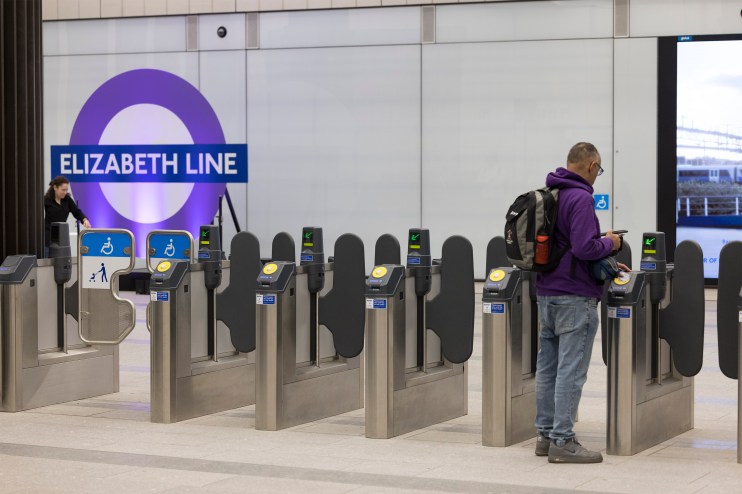TfL strikes £250m funding deal with government to become ‘financially sustainable’

Transport for London (TfL) has struck a deal with the government for £250m funding after the network’s future capital arrangements were left unclear in last month’s Autumn Statement.
TfL announced today that it would receive £250m in capital investment funding over the next year that would make its day-to-day operations “financially sustainable”.
The agreement comes as London’s transport network approaches pre-pandemic traffic levels, following a consistently chequered recovery after its coffers were emptied during the lockdown years.
TfL reached a funding agreement with Mayor Sadiq Khan and the government last August to avert what had been described as “managed decline”, preventing cuts to bus and tube services in the capital.
But that funding it is set to expire in March, leading to new discussions over capital needs for 2024, 2025 and beyond.
TfL’s chief finance officer, Rachel McLean, warned the government that the network faced a “funding cliff edge” after Chancellor Jeremy Hunt last month failed to confirm future capital arrangements for the body in the Autumn Statement.
London transport commissioner Andy Lord said: “Through a huge effort to reduce costs and rebuild our ridership and revenue following the pandemic, TfL is now on track to be financially sustainable in terms of its day-to-day operations. We are also able to cover the cost of the majority of our capital investment.”
“It is good news that we have now reached an agreement with the government on the capital support that they will provide over the next year, and we are grateful for the support. However, we will now need to reassess our recent draft business plan and address the impact of the continuing shortfall in funding. That work is underway so that we can confirm as soon as possible what we will deliver for London.”
Liberal Democrat transport spokesperson Caroline Pidgeon slammed the government for “constantly forcing TfL to operate on a short-term basis”, meaning “projects will end up costing more overall and that those that require long-term funding commitments have their futures placed in doubt”.
Transport secretary Mark Harper said: “The government has expressed ongoing concern about the management of TfL by this mayor, and it is disappointing that London taxpayers are having to foot the bill for the GLA’s poor governance and decision-making.
“Our capital city deserves a mayor who can balance the books without taxing the poorest motorists, or relying on taxpayers to prop them up.”
A spokesperson for the mayor told City A.M. Harper’s comments were “a desperate attack” and “simply not true”, noting that TfL’s operating surplus has bounced back from the pandemic to cover most of its capital investment needs.
“The government has repeatedly recognised in its funding deals the need to provide additional capital funding, as it does with numerous other transport authorities who receive a much bigger percentage from them than London,” they added.
John Dickie, chief executive of BusinessLDN, said: “A capital funding deal for TfL was on the Christmas wish list for Londoners and businesses across the capital so it is a relief that a one-year settlement has finally been reached.
“This will provide some short-term certainty but it is now important that a multi-year funding deal is agreed to enable London and suppliers across the country to plan for the future with confidence. A world-class public transport network is vital to keep London moving, retain its position as a global city and support jobs across the country.”
Updated to include political commentary